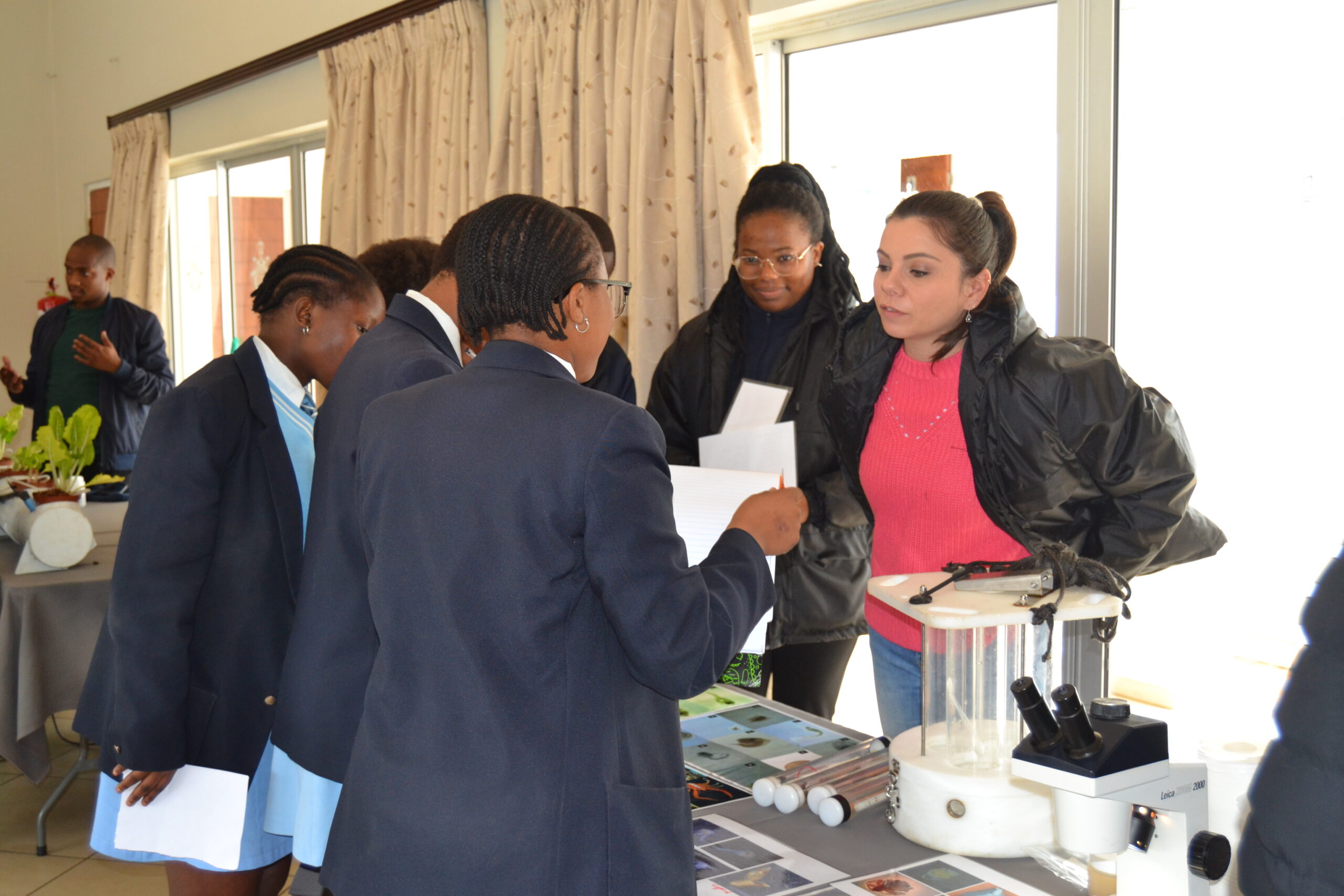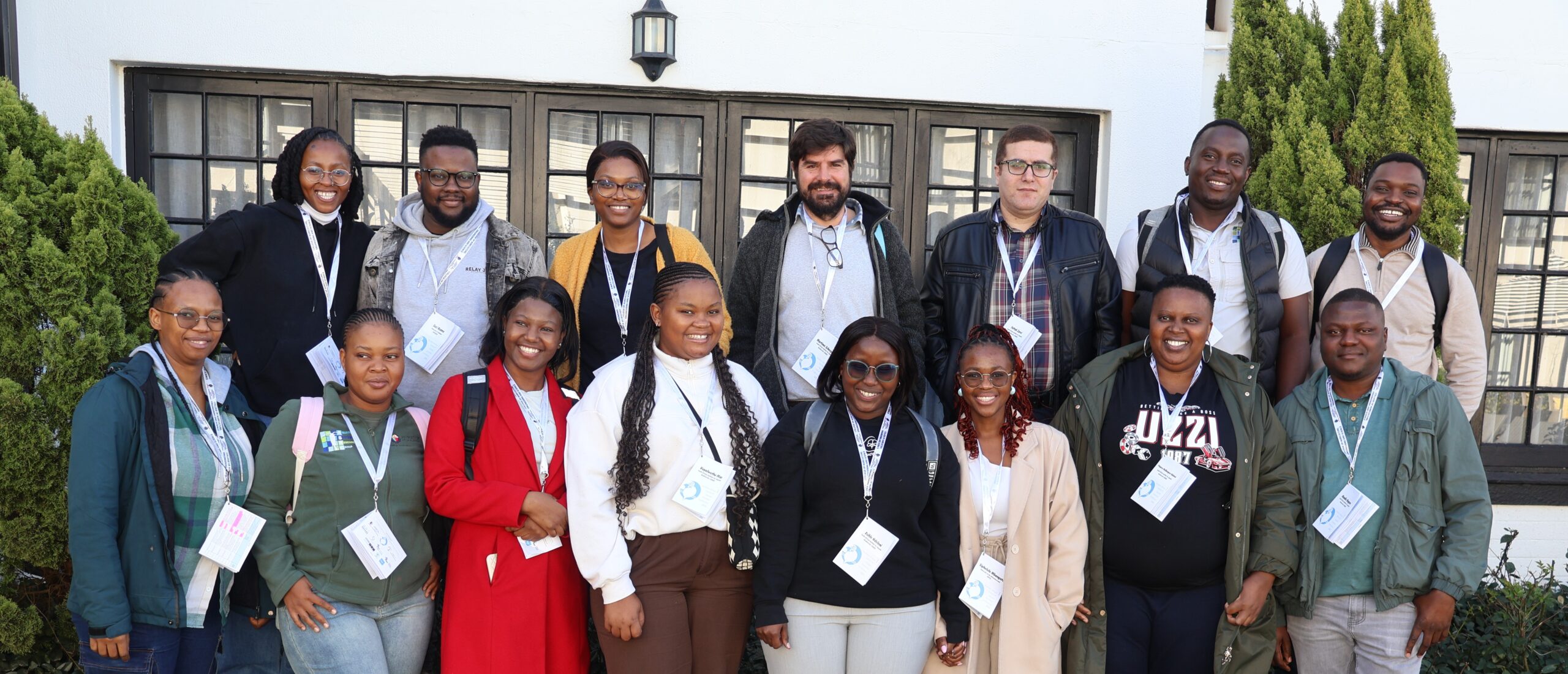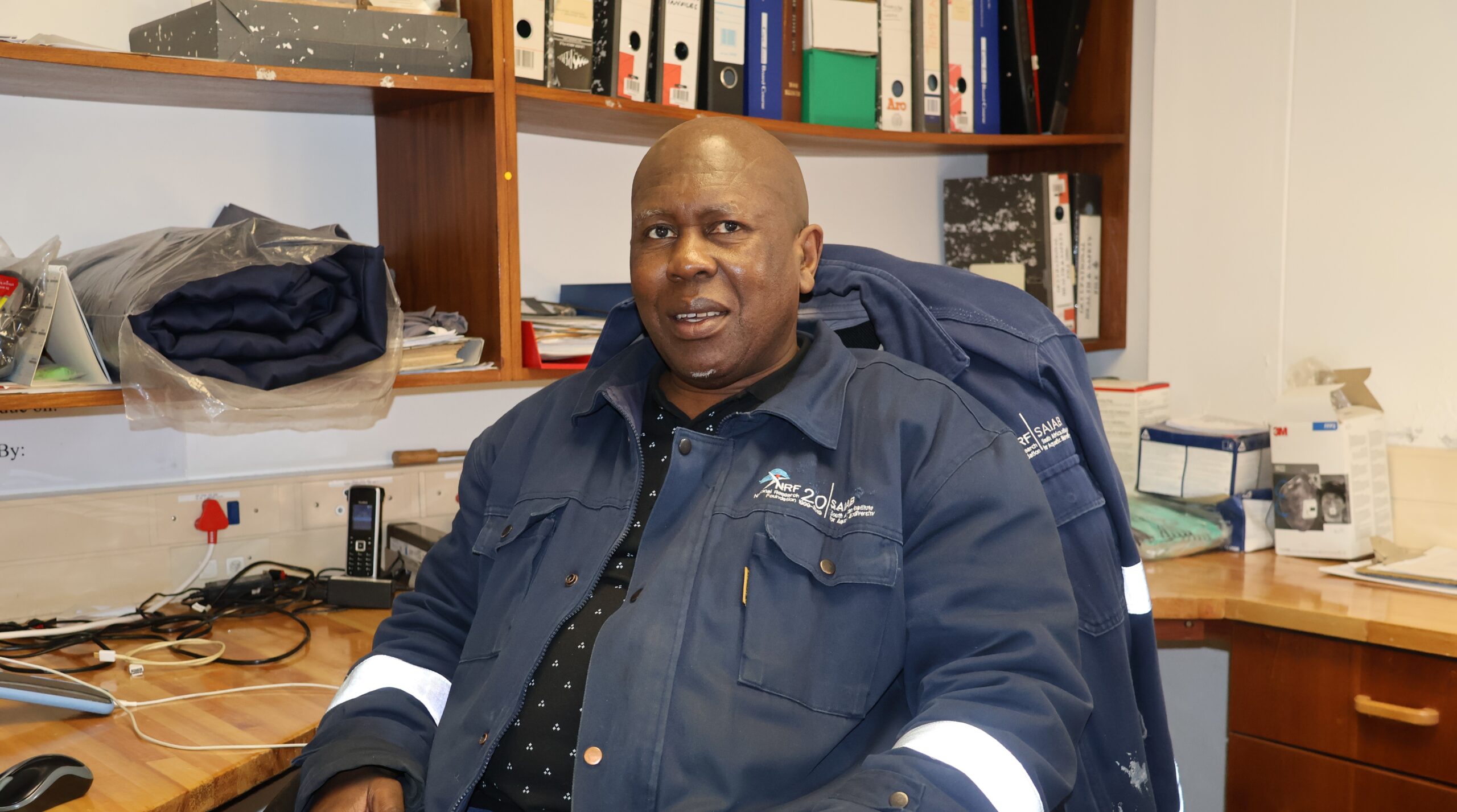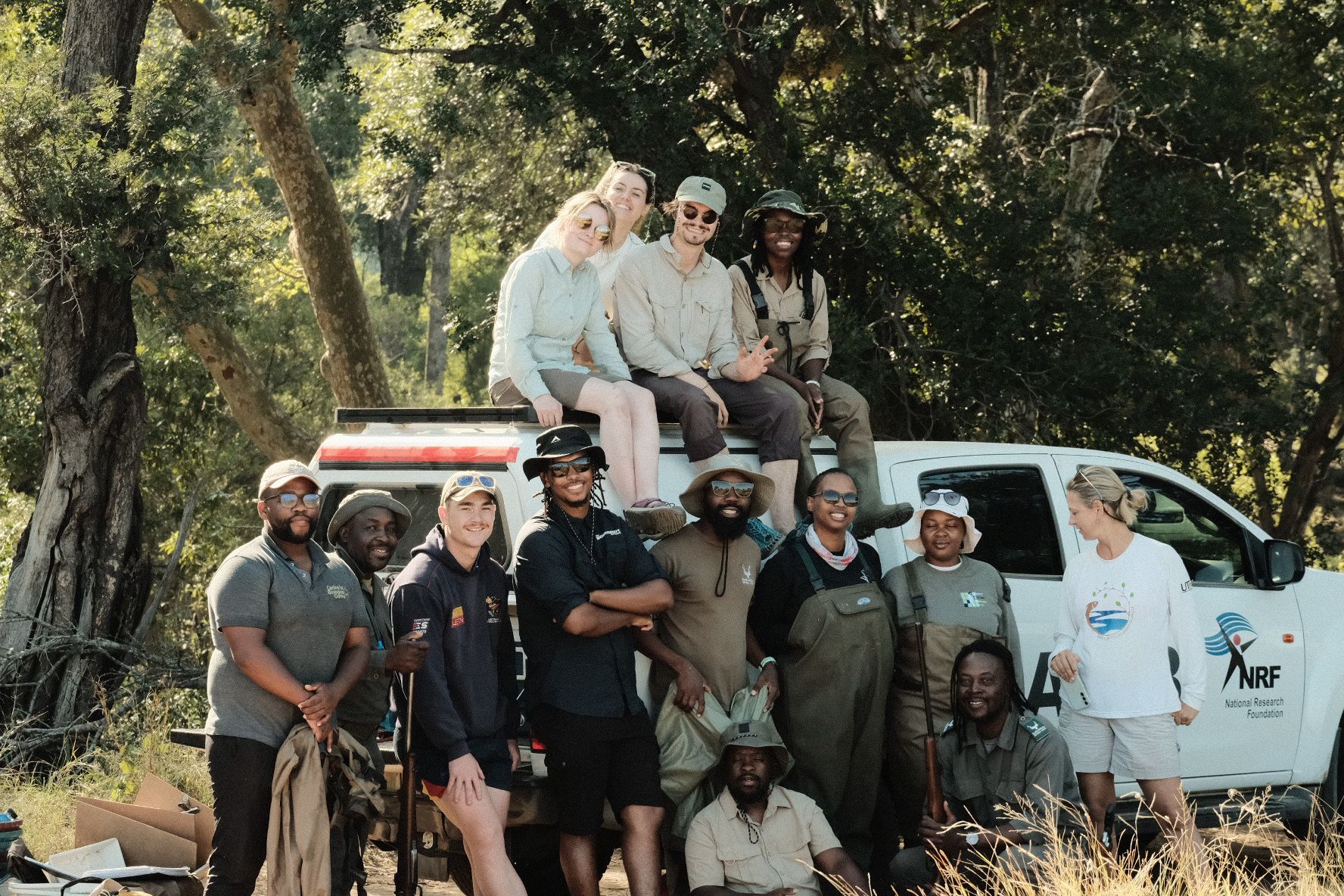In the quest of making scientific knowledge accessible to the public and to encourage sustainable environmental practices, the Coastal and Ocean Sciences Team (COST) from the South African Institute for Aquatic Biodiversity (NRF-SAIAB), in collaboration with the Royal Alfred Marina, hosted 20 high school learners from Kuyasa Combined School. The initiative, which included presentations from PhD students, an exhibition and a fun quiz took place on Tuesday, 05 September 2023 at the Royal Alfred Marina in Port Alfred.
The collaboration between NRF-SAIAB and the Royal Alfred Marina came about from their aligning values of creating awareness about the importance of conserving and preserving aquatic life. This was also a perfect fit as the Royal Alfred Marina is a human–made structure and the event was co-organised by SAIAB’s IMIsee (Indigenous Marine Innovations for Sustainable Environments and Economies) project, a transdisciplinary research that aims to enhance early life stage coastal biodiversity in the built environment, as compared to natural rocky shorelines.
The day began with an introduction from the project’s manager, Prof. Francesca Porri, followed by presentation from PhD students, Vuyolwethu Mxo, Nobuhle Mpanza, Jabulani Ndaba and Siphelele Dyantyi. The students presented their research topics and their significance to the overall field of conservation. The students also spoke about the equipment and methodologies associated with their respective research.
The research topics included using innovative nature-based solutions to improve and understand changes in water quality, primary productivity, biodiversity, and adding light to the early life stage food-webs of fish and invertebrates in urban coastal environments. A key component of the project is to co-create these nature-based structures in partnership with the members of the Keiskamma Trust, in Hamburg. Since the material used to co-create the structures is a plant commonly found in coastal and inland areas of the Eastern Cape, one project is specifically investigating the sustainable potential of domestication of Cyperus textilis, also through different plant-cultivation system, including aquaponics.
The programme followed up with an interactive display of the equipment used in these research topics to provide a more practical outlook for the learners. The day was concluded with a fun quiz with questions derived from the presentations that took place earlier.
This initiative was a great opportunity to introduce new concepts, making scientific knowledge accessible and to encourage curiosity about the environment to young minds. Upon being asked about their experience, a few learners stated that they were excited about learning about stuff they did not know existed while some stated that they are now encouraged to learn more about science.




